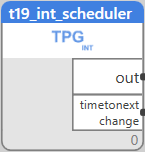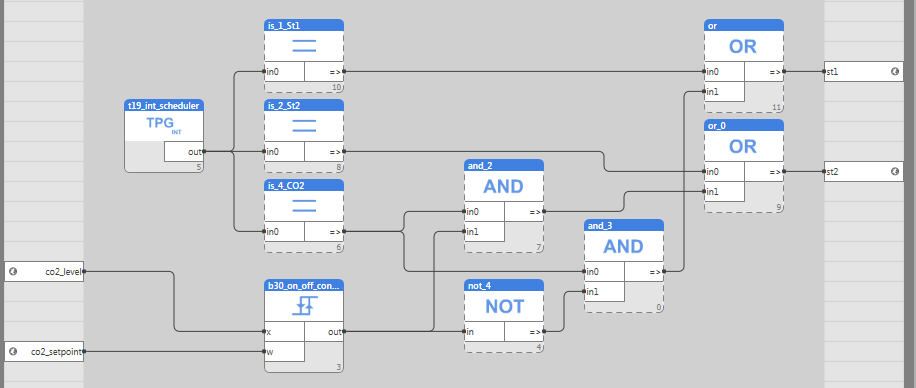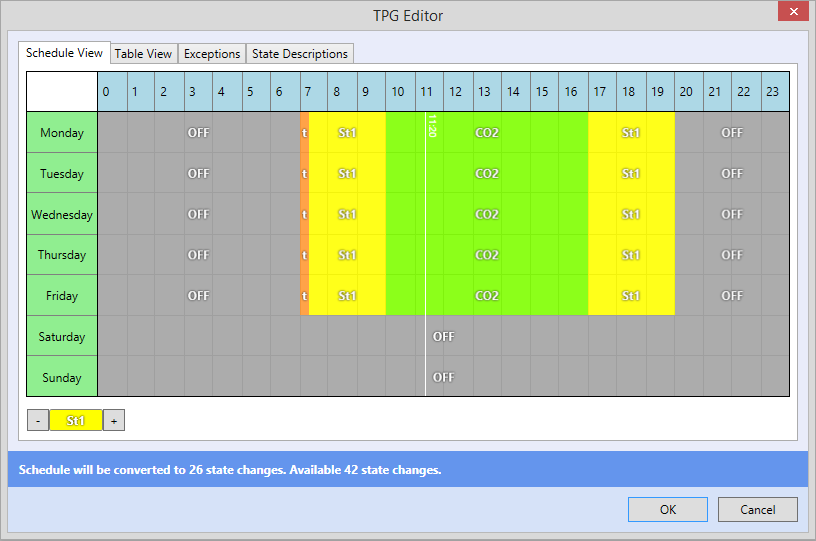Time scheduler, integer
Block name
T19_INT_SCHEDULER
ST call
PROGRAM TEST_T19 VAR FB : LIB.HVAC.V1_0.T19_INT_SCHEDULER := (TPGVALUE := [(STARTTIME := 0, STATE := 0), (STARTTIME := 1630, STATE := 7), (STARTTIME := 1750, STATE := 0), (STARTTIME := 3070, STATE := 7), (STARTTIME := 3190, STATE := 0), (STARTTIME := 65535, STATE := 0)], EXCEPTIONS := [(STARTTIME := 1000, ENDTIME := 2000, STATE := 0)]); DT1:DT; INT1:UINT; END_VAR DT1:=getlocaltime(); FB(CURRENTTIME:=DT1, OUT=> INT1); END_PROGRAM
Library
LIB\HVAC
Version
V1.0
Description
Time scheduler is a source of an integer variable which value changes according to a weekly schedule with maximum 42 events (changes of state). Exception events (exceptions) defined by date, time, and state can be inserted.
The output value is recalculated at 30-second intervals.
Inputs
| Input | Type | Description |
| CURRENTTIME | DT | Date and time in case that other date and time than system date and time shall be used |
| DEFAULTVALUE | UINT | Output value if en=false |
Outputs
| OUT | UINT | Current time schedule state |
Description of internal structures
| Description | Importance |
| STATE | Current state of the time program |
| STARTTIME | Minutes from the beginning of the day |
Function
The time scheduler compares current date and time with the definition table and sends the actual state to the output. The output is a integer value. The possible scheduler states are defined The time scheduler can be edited from IDE or HMI - LCD display, web interface, touchscreen, SCADA or another client).
Application example
Time scheduler is used to specify variable setpoints in time directly. (Use T17_BOOLEAN_SCHEDULER for boolean (on/off) output, and T18_REAL_SCHEDULER for direct outout of analogue setpoints.) At the image below, T19 is used to switch between Off / Stage 1 / Stage 2 / CO2 control modes. In the CO2 mode, the fan stages are changed according to the CO2 concentration in the room.
In the editor there is a morning purge at 7:00 with Stage 2, Stage 1 is active in the morning and in the evening, while in the daytime the CO2 control is active.


